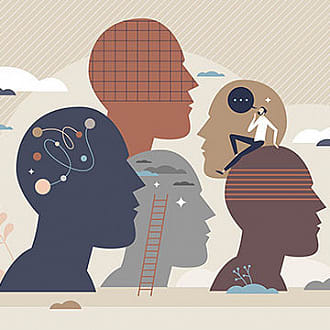
The Best Articles in Learning
The most useful articles and videos in Learning from around the web, curated by thought leaders and our community.
Refind focuses on timeless pieces and updates the list whenever new, must-read articles or videos are discovered.
Top 5 Learning Articles
At a glance: these are the articles that have been most read, shared, and saved in Learning by Refind users in 2024 so far.
Videos
Watch a video to get a quick overview.
CLARITY Is POWER: Yuval Noah Harari
Ultra-athlete Rich Roll talks with bestselling author Yuval Noah Harari about the most pressing issues currently facing mankind. For more, go here👉🏾http://...
4.5 Billion Years in 1 Hour
Learn more about how complex life evolved with our new, elaborately detailed Timeline of Evolution Poster. Available only on the kurzgesagt shop here: https:...
Fitness Coach Nimai Delgado ON: How Failure Is A Part Of Success
Are you unsure about your career path? Are you trying to build financial stability? This conversation with fitness coach Nimai Delgado offers fresh insights ...
16 Life-Changing Ideas You’ve Never Heard Of
George Mack is a writer, marketer and entrepreneur.If our mind is an operating system, ideas are the apps we install to give us a greater understanding of th...
Memory hack: Derren Brown teaches the method of loci
Memory hack: Method of lociWatch the newest video from Big Think: https://bigth.ink/NewVideoJoin Big Think Edge for exclusive videos: https://bigth.ink/Edge-...
What is ...?
New to Learning? These articles make an excellent introduction.
What is neurodiversity?
The term neurodiversity conveys the idea that there is no single right way of thinking, learning, or behaving, and is often used in the context of autism spectrum disorder. A growing self-ad...
How to ...?
How to make more time to read
Many of us would like to have more time to read, but life can get in the way of picking up a book. What are strategies that actually work?
«However, speed reading limits your comprehension of the novel, reducing the accuracy of what you read and hindering how much you retain of the story»
How to Fail at Almost Everything and Still Win Big
Don't set goals. Passion is bullshit. Mediocre skills are valuable. These are just a few of the unexpected truths you'll discover in Scott Adams' new book. Here are 10 more takeaways.
«most people have poor filters for sorting truth from fiction, and there’s no objective way to know if you’re particularly good at it or not.»
How to Be a Little Wiser: 3 Practical Tips From Wisdom Experts
What is wisdom? Here, according to those who study it, are some answers and practical tips for making wiser decisions in your life.
«“A highly intelligent fool may not recognize that such a tradeoff exists in the first place,”»
How to become an expert
The path to mastery is long, winding and hugely fulfilling. Use this map to navigate and overcome any bumps along the way
How to Learn Quickly: 10 Proven Ways to Master Any Skill
Discover how to learn quickly, master any skill, and supercharge your personal growth with these ten simple, proven learning techniques.
Trending
These links are currently making the rounds in Learning on Refind.
Jonathan Haidt: Smartphones Rewired Childhood. Here’s How to Fix It.
Phones have made kids sedentary, solitary, anxious, and depressed. But, says the author and psychologist, we can reverse the damage.
The case for financial literacy education
Financial literacy programs have been called useless in the past. But a new study suggests that's due to the way the subject is taught, rather than the subject itself.
Six financial literacy principles
Core concepts to help build sound financial management skills in youth.
The End of Foreign-Language Education
Thanks to AI, people may no longer feel the need to learn a second language.
Short Articles
Short on time? Check out these useful short articles in Learning—all under 10 minutes.
How to find success with the 4 conditions of “intelligent failure”
Intelligent failure occurs in a low-risk environment and leads to growth or new knowledge. To fail intelligently, follow five strategies.
How to fight the "tyranny of small decisions"
The book shop in Garrett’s local town always has beautiful displays. Every time he walks past, Garrett smiles at some quirky, cuddly toy hang-gliding over the book mountains. He pauses to take an…
Smart Things I’ve Read Lately
“Until we know we are wrong, being wrong feels exactly like being right.” – David McRaney “I’m just a collection of mirrors, reflecting what everyone else expects of me.” – Rollo May “Basically, when…
«“Life is not a problem to be solved. It’s a paradox to experience. You can believe one thing and also believe its opposite.” – Derek Sivers»
How to Ask Bad Questions: 5 Questions to Avoid
A collection of bad questions we should know when to avoid or be able to identify when confronted. It all depends on what side we're on.
Baloney Detection Kit: How to Think Sceptically and Bust Bullshit
An exploration of Carl Sagan's Baloney Detection Kit, a set of cognitive tools to help you think sceptically and bust bullshit.
«Carl Sagan’s Baloney Detection Kit is an informal set of thinking tools and techniques for evaluating arguments and detecting falsehoods»
Long Articles
These are some of the most-read long-form articles in Learning.
How to Succeed at Failing, Part 1: The Chain of Events
How to Succeed at Failing, Part 1: The Chain of Events - Freakonomics
My 12 Favorite Problems
A dozen things that drive my writing, research, thinking & actions
«battle against the constant pressure from powerful forces to narrow and constrain my life»
The mathematically correct way to tie your shoes
One of the major milestones of our early childhoods comes when we learn, for the first time, how to successfully tie our own shoes. As most of us learned, there are three key steps to making that…
Podcasts
On the go? Listen to these Podcasts and audio in Learning.
What is Refind?
Every day Refind picks the most relevant links from around the web for you. Picking only a handful of links means focusing on what’s relevant and useful.
How does Refind curate?
It’s a mix of human and algorithmic curation, following a number of steps:
- We monitor 10k+ sources and 1k+ thought leaders on hundreds of topics—publications, blogs, news sites, newsletters, Substack, Medium, Twitter, etc.
- In addition, our users save links from around the web using our Save buttons and our extensions.
- Our algorithm processes 100k+ new links every day and uses external signals to find the most relevant ones, focusing on timeless pieces.
- Our community of active users gets the most relevant links every day, tailored to their interests. They provide feedback via implicit and explicit signals: open, read, listen, share, mark as read, read later, «More/less like this», etc.
- Our algorithm uses these internal signals to refine the selection.
- In addition, we have expert curators who manually curate niche topics.
The result: lists of the best and most useful articles on hundreds of topics.
How does Refind detect «timeless» pieces?
We focus on pieces with long shelf-lives—not news. We determine «timelessness» via a number of metrics, for example, the consumption pattern of links over time.
How many sources does Refind monitor?
We monitor 10k+ content sources on hundreds of topics—publications, blogs, news sites, newsletters, Substack, Medium, Twitter, etc.
Can I submit a link?
Indirectly, by using Refind and saving links from outside (e.g., via our extensions).
How can I report a problem?
When you’re logged-in, you can flag any link via the «More» (...) menu. You can also report problems via email to hello@refind.com
Who uses Refind?
450k+ smart people start their day with Refind. To learn something new. To get inspired. To move forward. Our apps have a 4.9/5 rating.
Is Refind free?
Yes, it’s free!
How can I sign up?
Head over to our homepage and sign up by email or with your Twitter or Google account.
Keep Learning
Get the big picture on your favorite topics.





















